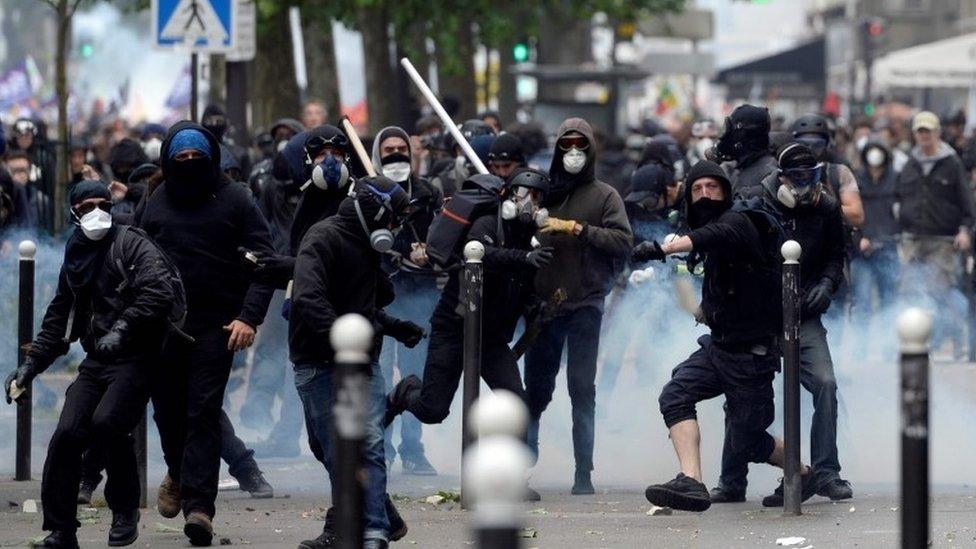France labour dispute: Ban on Paris protest 'lifted'
- Published
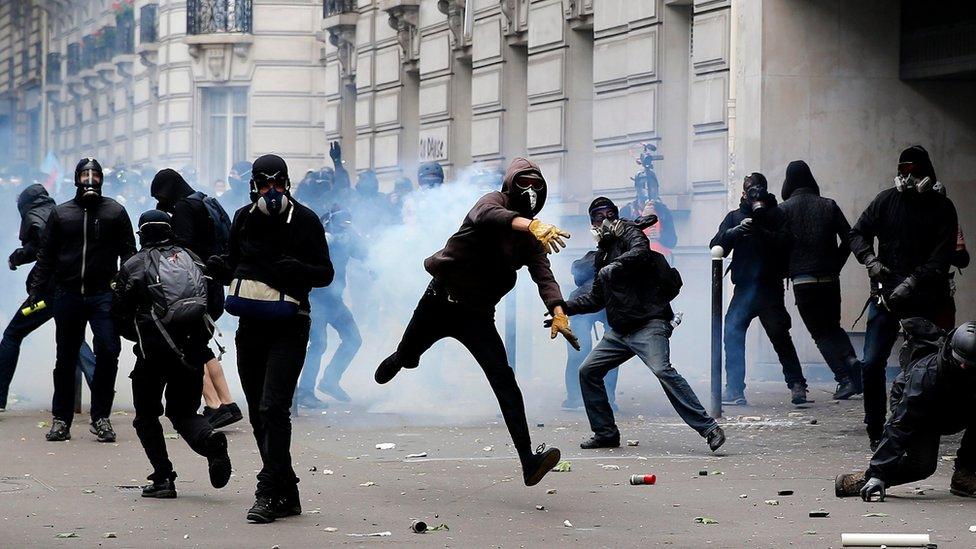
Police had said any march was banned, citing violence at previous protests such as this one on 14 June
A French union says it has secured the government's agreement to allow a protest march on Thursday in Paris.
If confirmed, it would reverse a police statement earlier on Wednesday banning the demonstration.
Philippe Martinez, the head of the left-wing CGT union, said the ban had been lifted after an emergency meeting with the interior minister.
Police had insisted any rally would have to be stationary, citing violence at a Paris protest last week.
But the ban elicited a furious reaction, with union leaders and many Twitter users pledging to defy it.
"After tough talks with the interior minister, the union and student organisations obtained the right to demonstrate on a route proposed by the interior ministry," Mr Martinez told a news conference.
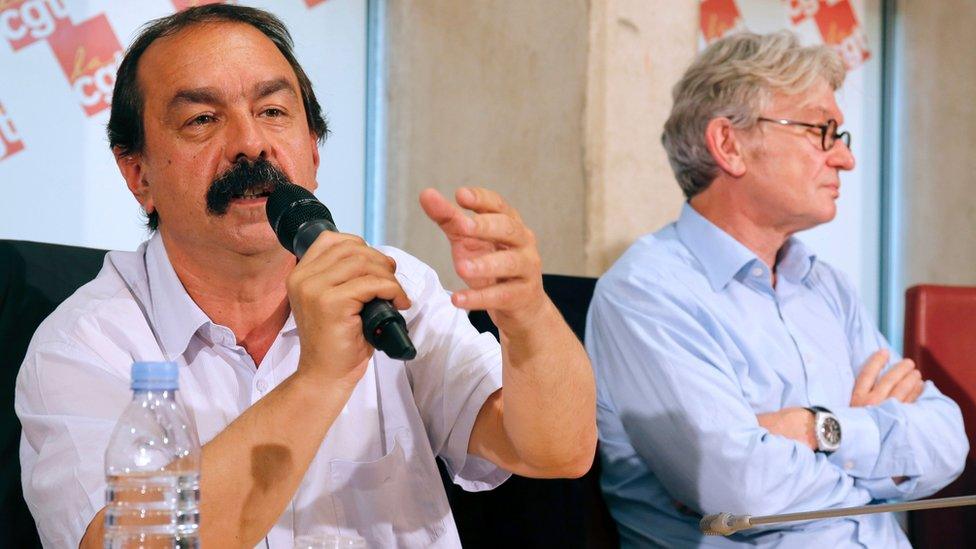
Mr Martinez of the CGT (L), flanked by Jean-Claude Mailly of Force Ouvriere, called the lifting of the ban a "victory for democracy"
Mr Martinez said it was a "victory for democracy" and urged workers to turn out in "massive" numbers.
The agreed route, proposed by the interior ministry, will cover 1.6km (one mile) near the centre of Paris.
That is much shorter than the original route proposed by the unions - so short, in fact, that Liberation newspaper suggested (in French), external that if there were a large turnout, it could end up being stationary anyway.
Clashes
The march is the latest in a series of mass demonstrations and strike action against controversial changes to employment laws.
But violence has marred previous protests. On 14 June, hundreds of masked protesters threw chunks of paving and set cars ablaze and a children's hospital in central Paris was badly damaged.

Burden on French police, by Hugh Schofield, BBC News, Paris

French police are "on the verge of a breakdown", according to one of their union leaders.
They are physically worn out by their multitude of tasks, morally exhausted by the constant criticism, and now - more than ever before - anxious for their very lives.

Police responded with tear gas and water cannon, and dozens of officers were injured.
In their earlier statement, the Paris police department said the police, who have the task of providing security for the Euro 2016 football championship and countering the threat of terrorism, were under too much pressure to allow the march to proceed.
The government's labour reforms make it easier for employers to hire and fire workers and relax the limit on working hours.
However, the bill was watered down before ministers decided to force it through the lower house of parliament to avoid it being voted down.

French labour reform bill - key points:
The 35-hour week remains in place, but as an average. Firms can negotiate with local trade unions on more or fewer hours from week to week, up to a maximum of 46 hours
Firms are given greater freedom to reduce pay
The law eases conditions for laying off workers, which is strongly regulated in France. It is hoped companies will take on more people if they know they can shed jobs in case of a downturn
Employers to get more leeway to negotiate holidays and special leave, such as maternity or for getting married. These are currently also heavily regulated
- Published19 June 2016
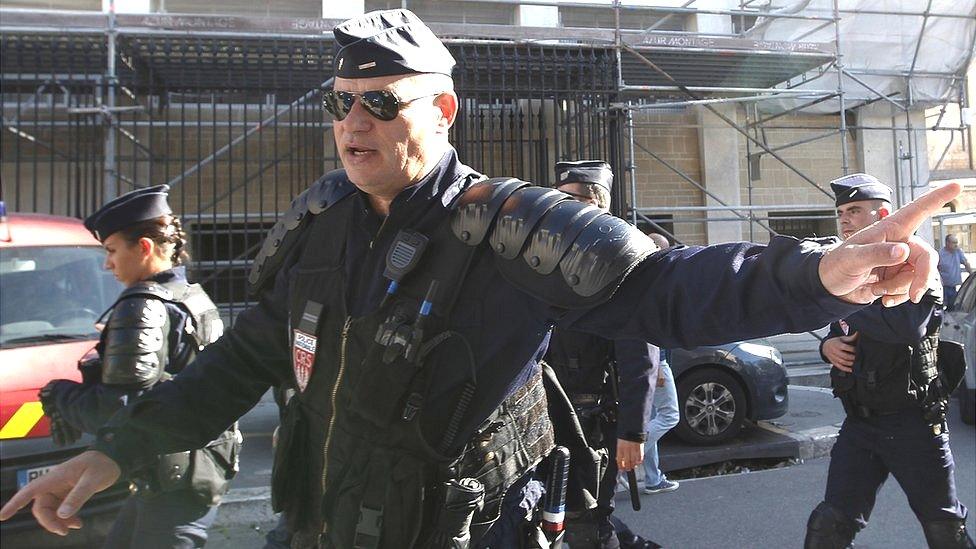
- Published9 January 2024
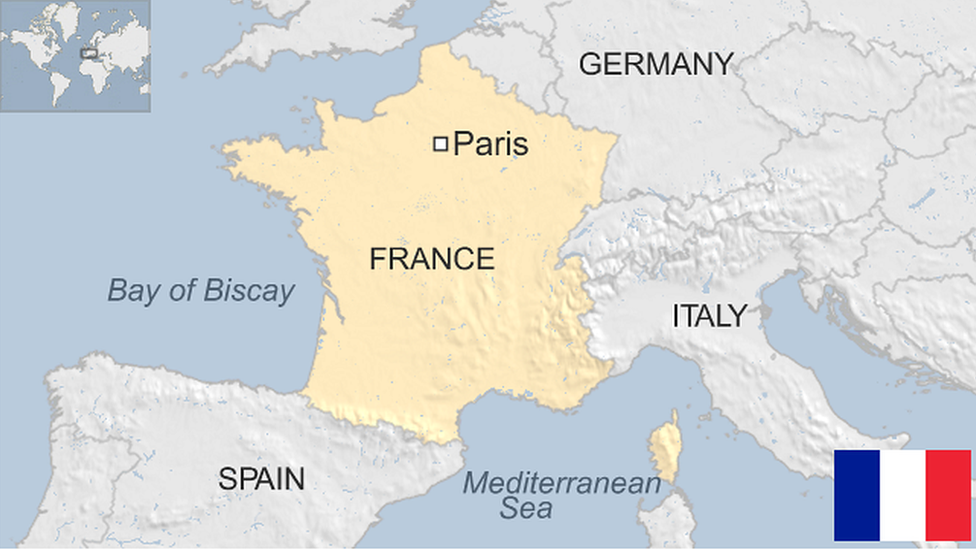
- Published14 June 2016
